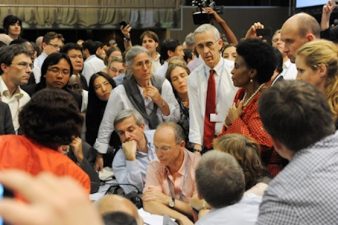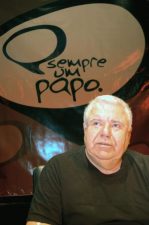This documentary film describes the activities of IBSAR, an interfaculty center at the American University of Beirut dedicated to nature conservation and sustainable research.
According to IBSAR members, “Nature is a special trust to be enjoyed and conserved for future generations. Conserving the biodiversity of nature in the Middle East is the foundation on which we can build an improved quality of land and ensure a sustainable future for the people of the region.”
 This video outlines some research activities of the 20 or so faculty members at the University; and includes plant hunters looking for new drugs, and specifically how the researchers are making clinical investigations on plants like the local Lebanese herbs hindbeh and kishk.
This video outlines some research activities of the 20 or so faculty members at the University; and includes plant hunters looking for new drugs, and specifically how the researchers are making clinical investigations on plants like the local Lebanese herbs hindbeh and kishk.
I love how the film crew transitions from the lab to the field, interviewing locals who’ve been picking and using the herbs for generations in their food (for loads of recipes from Lebanon, click here). And then how the researchers are using the herbs to promote the use of traditional foods (PDF), as a means to generate income for the women, and to promote biodiversity.
The diet in the Eastern Mediterranean and especially Lebanon, Syria, and Jordan is characterized by a heavy reliance on refined grains (white flour) as the primary source of energy.
These countries also experience an increase in the rates of chronic non communicable diseases (cardiovascular disease, diabetes), a reflection of the emerging “nutrition transition” experienced by these countries. The “nutrition transition,” reports ISBAR scientists, seems to be occurring alongside chronic problems of under nutrition, specifically micronutrient deficiencies reflected in high rates of anemia among certain subgroups, particularly the urban and rural poor.
IBSAR is engaged in a project that aims at increasing dietary diversity in the urban and rural poor through the promotion of the sustainable use of wild edible plants, ultimately improving general health status in the targeted communities.
For more information see the Wild Edible Plants website.
This is a model the rural Palestinian, Beduin and Druize populations in Israel could benefit from.
Watch the video. You’ll learn something new.
::ISBAR




3 thoughts on “VIDEO: The American University of Beirut In Lebanon Fights For Sustainable Research Through ISBAR”
Comments are closed.